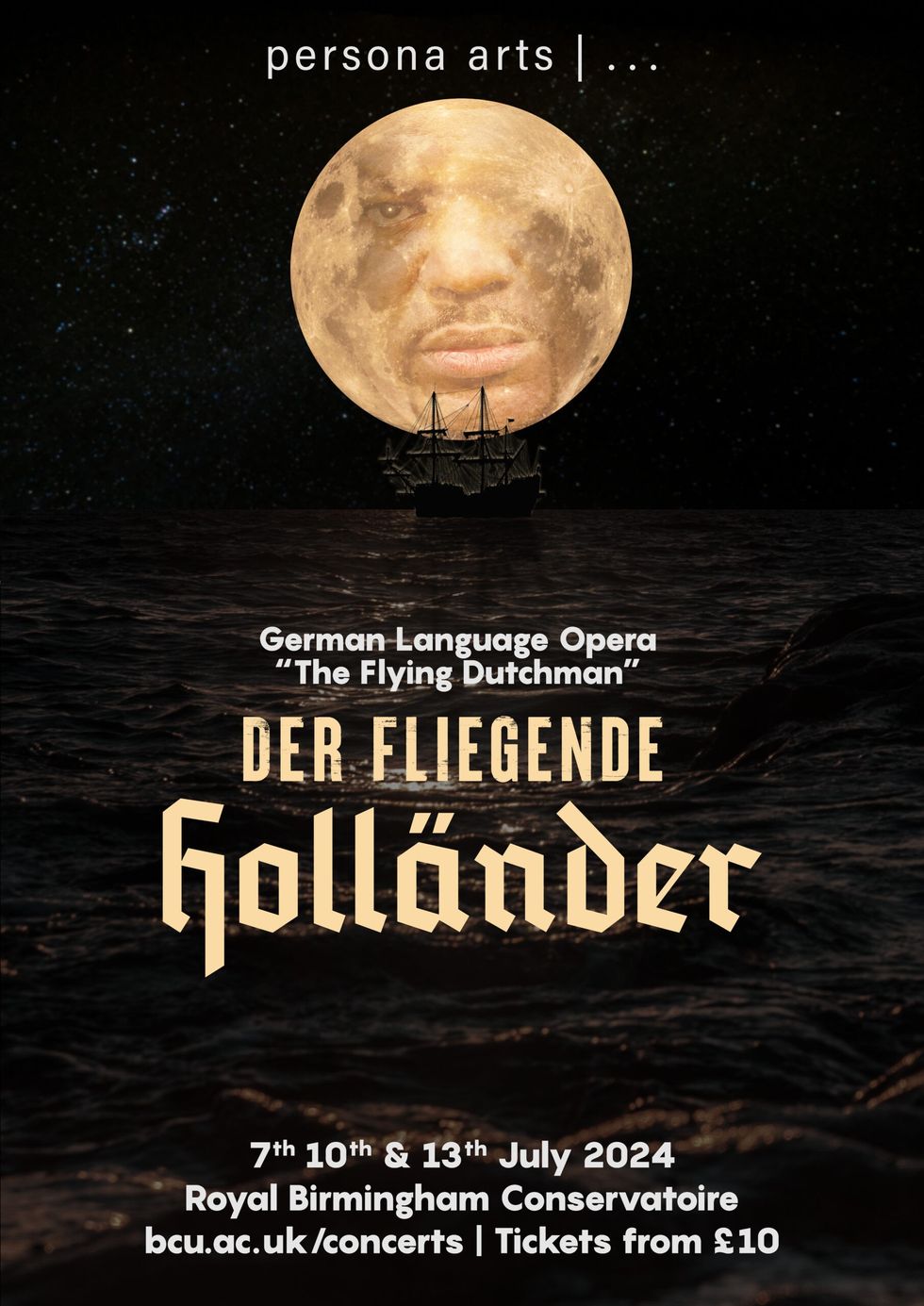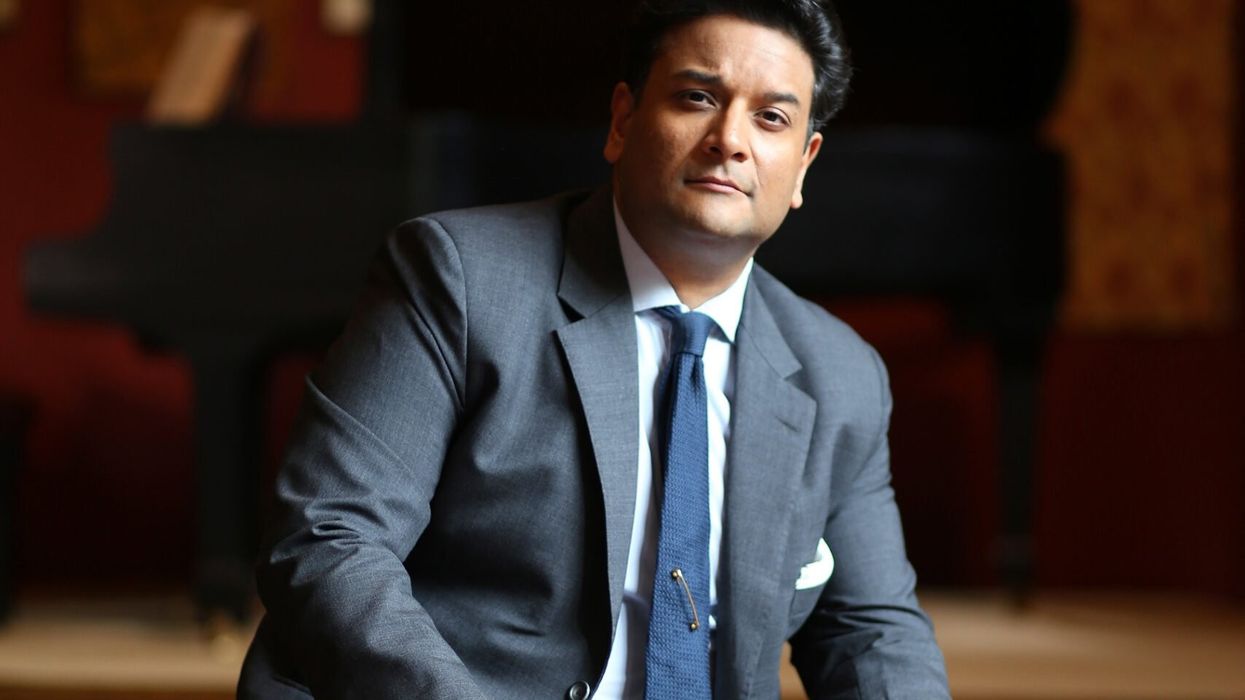RENOWNED Indian opera singer Anando Mukerjee has said that Byron Jackson’s diverse production of Wagner’s The Flying Dutchman will break barriers in opera.
The play is the UK’s first ethnically led Wagner production with artistic direction from Jackson and stage direction by Iqbal Khan.
Jackson, a dramatic baritone of British Jamaican heritage from the West Midlands, is the Artistic Director of Persona Arts (formerly BJ Music Events), a charitable organisation dedicated to bringing opera, classical, and choral music to the West Midlands communities.
“The show is part of a mission to break down racial barriers that still exist within the opera and classical music sectors,” Mukerjee told Eastern Eye.
Regarded as Richard Wagner’s first indisputable masterpiece, The Flying Dutchman is a staple of the international opera canon.
Premiered in 1843, it narrates the tale of a man cursed to sail the seas forever unless he discovers true love. This production will be performed in its original German, accompanied by English subtitles.
The community chorus and orchestra are drawn from across Birmingham and the Black Country, and into rural areas of Shropshire and Worcestershire.
“The arts, particularly the opera world, are underrepresented in terms of ethnic diversity, predominantly comprising individuals of European or white heritage. This makes Byron Jackson’s initiative remarkable, as his chorus includes many people from non-white and underprivileged backgrounds who typically lack exposure to the arts, especially opera,” said Mukerjee, who plays the main tenor role Erik, in the show.
“Furthermore, the principal cast features several non-European members. Byron himself is Jamaican, the second tenor is a Trinidadian, and I, an Indian national. Other roles include a Welsh singer, an English mezzo-soprano, and an American singer, making the cast truly international and diverse.”
Not only is this production noteworthy for its diversity but also for being a fully staged production with a professional orchestra and a young conductor in Jack Ridley.
Director Khan, a distinguished UK director of Pakistani origin, added that the project exemplifies inclusivity in the arts. “Despite the economic crisis, the Arts Council granted significant funding to Byron’s unique project,breaking the mold of traditional British opera companies,” said Mukerjee.

He pointed out that the show is a ‘grassroots movement’ built from the ground up.
“Most established opera companies, such as the Scottish Opera, Welsh National Opera, English National Opera, and the Royal Opera, are based in major cities and funded nationally, or they operate on private money like the country house opera scene. In contrast, Byron’s project is a grassroots movement built from the ground up to create an opera company of international standard and national significance, deeply engaged with the community,” he said.
“This remarkable project has quickly gained recognition, presenting a fully professional production with internationally acclaimed artists and extensive community involvement. The expectation is it will be well-received, drawing attention to its innovative model of inclusive and diverse opera production, maintaining artistic excellence despite economic challenges.”
The journey to establish Persona Arts began before the pandemic. Although the pandemic delayed progress, Jackson has spent several years developing this initiative.
The production includes a community chorus of about 40 members from diverse backgrounds which includes African-Caribbean and Asian heritage, supporting the professional singers and fostering local engagement in the arts.
While describing the initial days of the project, Bihar-born Mukerjee said, “Due to recent economic challenges in Britain, such as the pandemic, the war in Ukraine, and Brexit, public funding for the arts has drastically decreased. The arts and hospitality sectors were hit particularly hard. Jackson, whom I’ve known for nearly 20 years, started Persona Arts to address this crisis. He envisioned creating an opera and entertainment company focused on Birmingham rather than the usual cultural hubs like London.
“Byron successfully applied for funding from the Arts Council, a government-funded body that supports major artistic projects in Britain. His unique initiative aimed to use opera, art, and music as tools for urban regeneration in Birmingham, a city that once thrived during the Industrial Revolution but has faced economic regression in recent years.”
Mukerjee is a renowned Indian name as an operatic tenor. He grew up in a predominantly Bengali household in Patna, Bihar.
His influences were largely derived from extended family and parents; his father being a surgeon and mother, a professional pianist. He had piano lessons at the age of 10. Within a few years, Mukerjee discovered his aptitude for singing when he tried to imitate the voices he heard on the radio.
Mukerjee chose to study natural sciences at Delhi University and then molecular biology at Cambridge University. The same year that he graduated from Cambridge was when he decided to formally pursue his training to be an operatic singer.
“I am the only internationally recognised operatic tenor from India, which highlights the uniqueness of my situation due to the small pool of Indian opera singers,” he said.
He started his formal training privately with teachers from the Royal College of Music. Soon he found himself under the tutelage of the Swedish operatic maestro Nicolai Gedda, one of the greatest living tenors of the 20th century.
Mukerjee trained under Gedda for about seven years and made his first operatic debut with Puccini’s La Boheme at the National Theatre in Belgrade in 2007.
“I transitioned from a science background in India to pursuing opera in England, overcoming significant barriers including lack of scholarships and visa restrictions. Despite these challenges and a prolonged period of hardship, I persevered and have since achieved success in my career, performing globally and gaining recognition.”
In his opinion, the landscape for Indian students aspiring to enter western classical music has improved in the last two decades with better opportunities and inclusivity.
He added, “This production of Wagner’s The Flying Dutchman is the first, to my knowledge, to be led predominantly by people from ethnic minorities, including not just the singers but also the director, producer, and chorus. My role in this production is Erik, a central tenor role. The story, based on the legend by German poet Heinrich Heine, revolves around themes of love and redemption. Erik, the mortal rival to the immortal Dutchman, presents an exciting contrast. This is a significant opportunity and a challenge, considering my background in Italian and French repertoires.”
The singer also revealed his ‘dream’ to establish National Opera Company and Academy in India within the next few years.
“This would help nurture local talent and promote opera in the country. The key to connecting opera with the new generation lies in leveraging social media and integrating it into popular culture, such as through Bollywood, which could democratise access and generate wider interest,” he said.
“My advice to aspiring opera singers is to never give up, maintain self-belief, and have faith, as these have been crucial in my journey,” he added.
Wagner’s The Flying Dutchman will be performed in the original German with English subtitles, at The Bradshaw Hall at Royal Birmingham Conservatoire, from next Sunday (7) to July 13.




